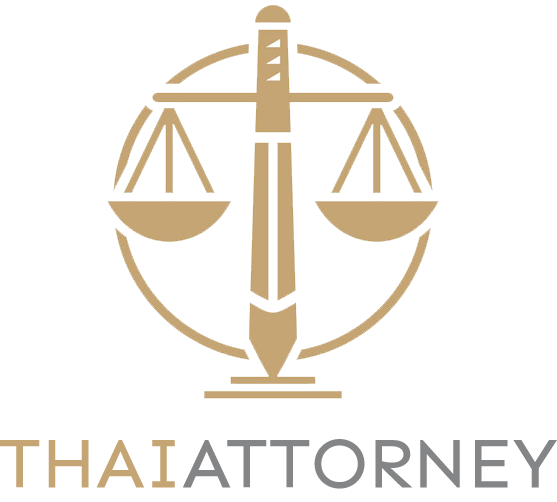The role of a notary public is an essential element in legal and commercial transactions worldwide, and Thailand is no exception. Although Thailand does not follow a traditional Western notary public system in the same manner as some countries, notarial services still play a crucial role in ensuring the authenticity, validity, and reliability of documents used domestically and internationally. Understanding the importance of notary public services in Thailand is particularly vital for businesses, foreign nationals, and individuals involved in cross-border transactions or formal legal matters.
Understanding Notary Public Services in Thailand
In Thailand, the term “notary public” is commonly used to refer to notarial services provided by lawyers who are licensed and certified by the Lawyers Council of Thailand as “Notarial Services Attorneys.” Thailand does not have a separate profession officially titled “Notary Public” under statute. Instead, qualified Thai lawyers may receive additional authorization to perform notarial acts in accordance with regulations issued by the Lawyers Council.
These notarial services include certifying signatures, verifying the identity of signatories, attesting documents, administering oaths, witnessing affidavits, certifying copies of documents, and confirming the authenticity of legal instruments. While notarial acts may not always be required for purely domestic transactions, they are often essential for documents intended for use abroad or in dealings with foreign authorities.
Legal Basis and Regulatory Framework
The importance of notary public services in Thailand stems from the regulatory framework established by the Lawyers Council of Thailand. Under its rules and regulations, only lawyers who have completed specific training and obtained certification may act as notarial services attorneys.
Although Thai law does not grant notarial acts the same statutory authority as in some civil law jurisdictions, notarized documents are widely recognized and accepted by courts, government agencies, embassies, and foreign institutions. This recognition enhances legal certainty and facilitates the smooth execution of legal and commercial transactions.
Ensuring Authenticity and Preventing Fraud
One of the primary reasons notary public services are important in Thailand is their role in ensuring document authenticity and preventing fraud. By verifying the identity of the person signing a document and confirming that the signature is genuine and voluntary, notarial services reduce the risk of forgery, impersonation, and coercion.
This function is particularly important in transactions involving high value or significant legal consequences, such as property transfers, powers of attorney, corporate documents, and affidavits. The involvement of a notarial services attorney provides an additional layer of trust and credibility, which is especially valuable when parties do not know each other personally.
Importance in International and Cross-Border Transactions
Notary public services in Thailand are especially important in international and cross-border contexts. Many foreign governments, overseas banks, international courts, and multinational companies require documents executed in Thailand to be notarized before they will be recognized or accepted.
Common examples include powers of attorney in Thailand for use overseas, affidavits for immigration or visa applications, corporate resolutions for foreign investment, and personal documents such as declarations of marital status. Notarization often serves as a prerequisite for further legalization processes, such as authentication by the Ministry of Foreign Affairs or legalization by foreign embassies.
For foreign nationals residing or doing business in Thailand, access to reliable notarial services is essential to ensure that documents meet international standards and are accepted abroad without dispute.
Supporting Business and Corporate Transactions
In the business and corporate environment, notary public services play a vital role in supporting efficiency and legal compliance. Corporate documents such as shareholder resolutions, directors’ certificates, agreements, and powers of attorney often require notarization for use in banking transactions, foreign investments, or international contracts.
Notarized documents enhance credibility and reduce the likelihood of challenges to authenticity. This is particularly important for foreign-owned or joint venture companies in Thailand, where overseas stakeholders may rely heavily on notarized documents to confirm corporate authority and decision-making.
Role in Litigation and Legal Proceedings
Notarial services are also important in legal proceedings in Thailand and abroad. Affidavits, sworn statements, and declarations often require notarization to confirm that they were made under oath and signed voluntarily. Courts and tribunals may place greater evidentiary weight on notarized documents, especially in cross-border disputes.
In addition, notarized powers of attorney are frequently required when appointing legal representatives, particularly when a party is unable to appear in person. This ensures that legal actions are properly authorized and reduces the risk of disputes over representation.
Protection of Individuals and Vulnerable Parties
The importance of notary public services extends to the protection of individuals, particularly those who may be vulnerable or unfamiliar with legal processes. By explaining the nature and implications of documents before notarization, notarial services attorneys help ensure that signatories understand what they are signing.
This protective function is especially relevant for elderly individuals, foreign nationals, or persons entering into complex legal arrangements. The presence of a qualified notarial services attorney helps safeguard against misunderstanding, undue influence, or exploitation.
Facilitating Administrative and Government Procedures
Many administrative and government procedures in Thailand and abroad require notarized documents. These may include company registration processes, immigration filings, inheritance matters, and transactions involving foreign authorities. Notarization helps standardize documentation and streamline administrative review.
By ensuring that documents meet formal requirements, notary public services reduce delays, rejections, and disputes, contributing to more efficient legal and bureaucratic processes.
Limitations and Practical Considerations
While notary public services are highly important in Thailand, it is also essential to understand their limitations. Notarial services attorneys do not certify the legal validity or content of a document; rather, they confirm identity, signature, and formal execution. Parties remain responsible for ensuring that the substance of the document complies with applicable law.
Additionally, requirements for notarization and legalization may vary depending on the destination country and the nature of the transaction. Professional legal advice is often necessary to determine the appropriate level of certification.
Conclusion
The importance of notary public services in Thailand lies in their role as a bridge between legal certainty and practical necessity. By ensuring authenticity, preventing fraud, facilitating international transactions, and supporting legal and business processes, notarial services contribute significantly to the reliability and efficiency of Thailand’s legal environment.
For individuals, businesses, and foreign nationals alike, access to qualified notarial services attorneys provides confidence that documents will be properly executed and recognized. As Thailand continues to expand its international connections, the role of notary public services will remain a vital component of cross-border trust, legal integrity, and effective transaction management.

